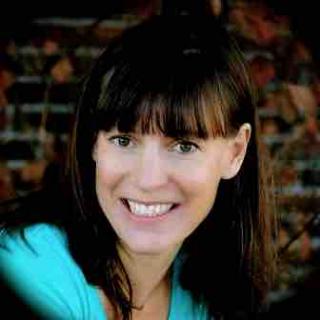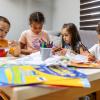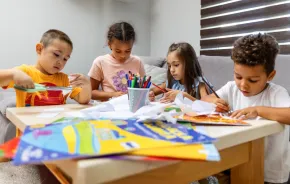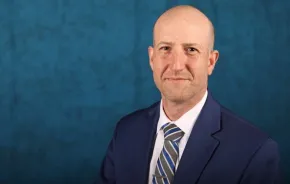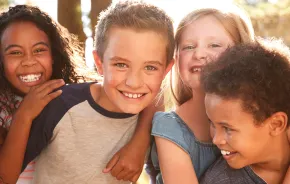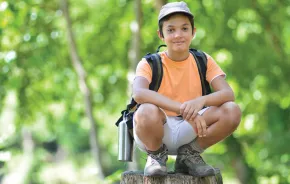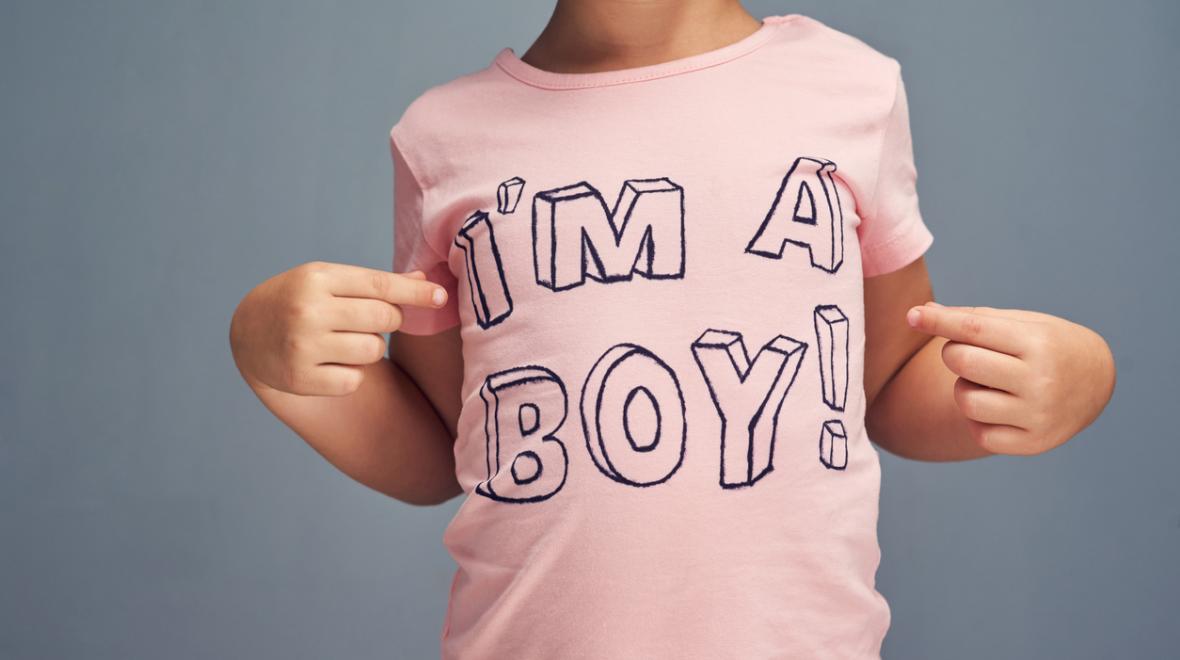
Jacob* was born in the body of a girl, but he’s never felt like one.
From the time he understood the difference between boys and girls, Jacob knew he was a boy. He thought of himself as a boy. When he slept, he dreamed as a boy. But without the language or words to explain his feelings, he was stuck living as a boy in a girl’s body. As he got older, he began to experience deepening anxiety.
His mom, Tiffany Kelly, knew something was wrong — and it was more than just “tomboy” behavior. “We tried to show him examples of strong female basketball players and strong women,” she says. “We tried to tell him that girls can do anything boys can do.”
But that wasn’t the problem. “That’s not how he saw himself,” she says. “A boy is who he really was and he taught me I needed to see him as he sees himself.”
There are many children like Jacob: 150,000 American students ages 13–17 identify as transgender. But for many students like Jacob, identifying as transgender begins much earlier than the teen years.
To meet the needs of these students, Seattle Public Schools has launched a K–5 Gender Book Kit, which aims to provide teachers, students and parents with resources to begin the conversation about young transgender students.
Kelly, who was a member of the district’s Gender Book Kit task force, says the books and lessons will assist teachers who want to support their transgender students but often must field questions from other students and parents. “It will help clear up confusion and misinformation and open up that conversation,” she says.
Five years ago when Jacob transitioned to a boy in first grade, these resources didn’t exist. Luckily, Kelly found support at Gender Diversity Seattle, which offers training and support groups. “They were key to helping me understand that the most valuable thing is to see your children they way they see themselves,” Kelly says.
A boy is who he really was and he taught me I needed to see him as he sees himself.
After Jacob’s transition, he began to thrive. He was fully supported by the school’s faculty and staff, as well as his friends and parents of his classmates, Kelly says. She feels blessed that her son’s transition was so successful and she credits the school’s response for that.
“He’s doing great,” she says. “He’s a happy, confident kid. I’m so grateful to the school, the teachers and the environment.”
Still, questions arose, Kelly says. The new Gender Book Kit should help the teachers address these topics, says Lisa Love, manager of health education at Seattle Public Schools.
“Teachers were asking for materials to help them talk about this issue,” Love says.
The book kit has resources for each grade from kindergarten through fifth grade. Twelve elementary schools have one kit that is shared between the teachers in each grade, Love explains. The books meet the Washington State Health Education Standards for Self-Identity, and also align with literacy standards at each age.
The use of the book kits is optional, Love says. But teachers appreciate that the resources are available if needed. A slow uptick in the number of openly-transgender students began about 10 years ago, but the numbers have risen more dramatically over the last five. “We’ve seen a more urgent need for school wide conversation on this topic,” Love says.
While Love is hearing from some concerned parents, most comments she’s received are positive. “The concerns are centered on questions about how this is going to be talked about,” she says. At the elementary age, there is no discussion about anything sexual. It’s strictly about gender identity.
Kelly hopes the book kit will help allay fears of parents who feel their belief systems are being challenged. “It’s not about that,” she says. “It’s about supporting children to be successful, gender aside. It’s such a beautiful idea to be expanding our children’s knowledge as they grow up in kindness and acceptance.”
*Jacob is not his real name.




